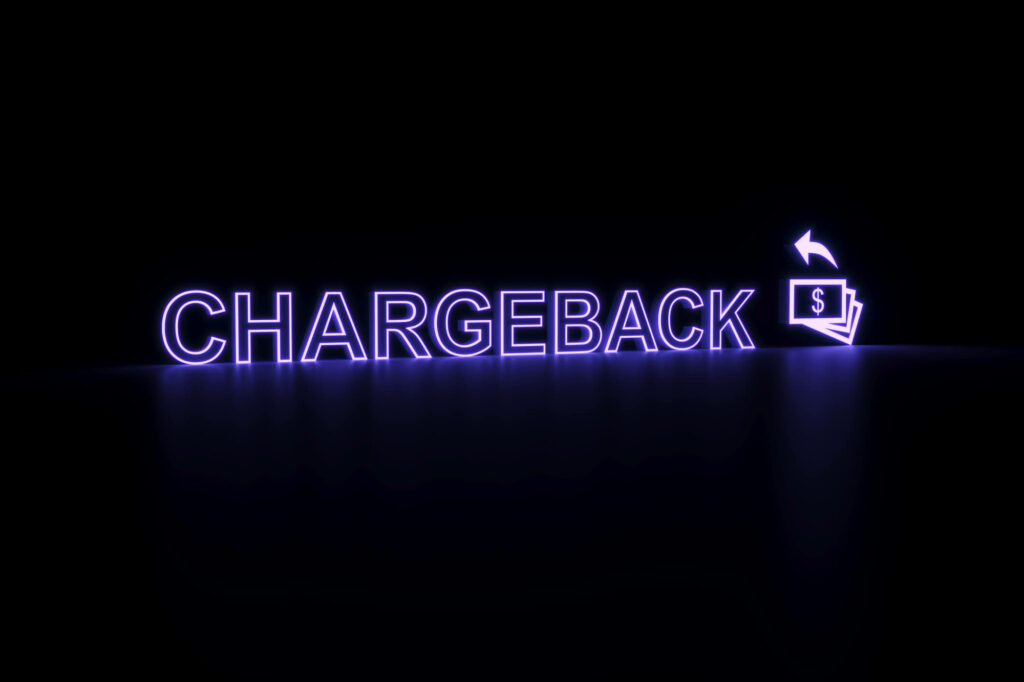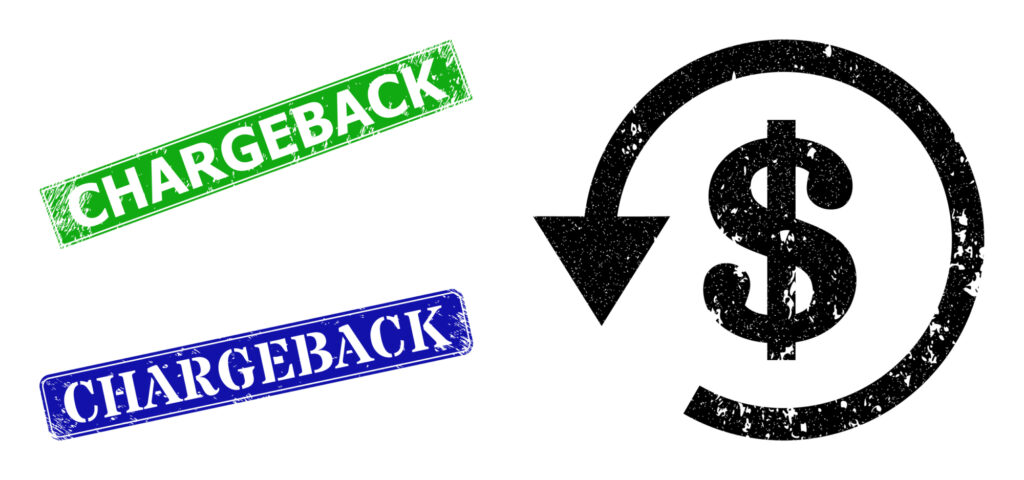The advent of digital transactions and e-commerce has made the way that business is conducted significantly easier, but it has also introduced a variety of new potential issues. One such issue revolves around the concept of chargebacks, an essential protective measure in electronic payment systems. However, the misuse of this mechanism through false chargeback claims poses serious implications for both consumers and businesses.
Definition Of a Chargeback

A chargeback, in the simplest terms, is a mechanism for reversing a transaction, usually involving credit or debit cards. It is a powerful tool for consumers designed to protect them from fraudulent activities and unsatisfactory transactions. When a consumer disputes a charge, the card issuer intervenes to investigate the claim. If the dispute is deemed valid, the bank then ‘charges back’ the transaction amount to the cardholder, effectively taking it from the merchant’s account. This system was designed to protect consumers, but like any protective measure, it is not immune to misuse.
What a False Chargeback Claim Means
A false chargeback claim also referred to as ‘friendly fraud,’ occurs when a cardholder disputes a charge that they knowingly and willingly made, and then falsely reports it as fraud, seeks to dispute a product’s quality without proper basis, or incorrectly claims non-receipt of a product or service. This is done with the sole intention of getting the charge reversed and obtaining the product or service for free. Such an action is not only unethical, but it can also result in significant consequences, ranging from merchant loss and financial penalties to legal repercussions for the individual making the false claim.
Understanding the Chargeback Process

Description of the Process
The chargeback process begins when a cardholder disputes a transaction on their statement, typically for reasons such as unauthorized charges, dissatisfaction with a product or service, or a discrepancy in the transaction amount. This dispute is lodged with their card-issuing bank, which then investigates the claim. If the bank deems the dispute valid, it initiates a chargeback, effectively reversing the transaction by deducting the disputed amount from the merchant’s bank account and crediting it back to the cardholder. The bank then sends a chargeback notice to the merchant’s bank, who in turn informs the merchant.
At this point, the merchant has the option to accept the chargeback or contest it by providing compelling evidence in what is known as a represented. If the merchant chooses to represent the charge, their bank submits this evidence to the cardholder’s bank for review. The bank then makes a final decision: if they find in favor of the cardholder, the chargeback stands; if they find in favor of the merchant, the transaction is reprocessed, and the funds are returned to the merchant.
Rights and Responsibilities of the Parties Involved
Both the cardholder and the merchant have specific rights and responsibilities within the chargeback process. As a cardholder, it is their right to dispute transactions that they believe are incorrect or fraudulent. However, they also have the responsibility to report these disputes in a timely and honest manner, typically within 60 days of the statement date where the disputed transaction appears.
Merchants, on the other hand, have the right to contest chargebacks if they believe that the transaction was legitimate. To do so effectively, they are responsible for maintaining comprehensive records of all transactions, including receipts, proof of delivery, and correspondence with the customer. If a merchant chooses to contest a chargeback, they must respond promptly to the chargeback notice with their evidence. It’s also a merchant’s responsibility to adhere to payment card industry standards to minimize the risk of fraudulent transactions.
Banks, as facilitators of the process, have the responsibility to review all the provided information and make a fair, unbiased decision. They also must follow federal regulations and card network rules regarding timelines and communication requirements. Furthermore, they have the right to recover the disputed amount from the merchant’s bank if the chargeback is upheld.
Reasons Why Some People File False Chargeback Claim
Examples of False Chargeback Claims
False chargeback claims occur when cardholders knowingly dispute legitimate transactions. This practice is also known as “friendly fraud.” For instance, a cardholder may receive a product or service but later deny having done so and file a chargeback claim. This can occur in cases where a product was delivered and signed for, yet the cardholder claims they never received it.
Another example is when a cardholder makes a purchase, benefits from it, but then files a dispute alleging they never authorized the transaction. A further instance is when a cardholder might claim dissatisfaction with a product or service, despite evidence of the contrary, such as positive feedback given at the time of the transaction.
Motivations Behind Such Actions
The motivations behind false chargeback claims are varied. One common factor is financial gain or avoidance of payment. This can happen when a cardholder is experiencing financial difficulty or simply desires to benefit without payment.
A lack of understanding can also play a part. Some cardholders might not fully comprehend the implications of a chargeback and see it as an easy way to get a refund without needing to return a product or cancel a service.
Impulse or regret after making a purchase is another reason. If a cardholder makes an impulsive purchase that they later regret, they may opt to file a false chargeback claim rather than go through the merchant’s return process.
Lastly, a level of anonymity provided by online shopping might make it easier for some cardholders to commit friendly fraud. They might feel detached from the personal interaction that usually exists in physical storefronts, reducing the moral deterrent against filing false chargebacks.
Consequences of Filing False Chargeback Claim
Immediate Effects on the Account
Immediately after filing a false chargeback claim, the disputed amount is typically credited back to the cardholder’s account while the investigation is underway. However, if the investigation finds the claim to be false, the temporary credit will be reversed, and the cardholder will be liable for the transaction amount. Frequent false chargebacks may also lead to the closure of the cardholder’s account by the issuing bank due to the risk they present.
Long-Term Impact on Credit Scores
Repeated false chargebacks can have a long-term impact on a cardholder’s credit score. While an individual dispute may not directly affect the score, banks may perceive habitual chargeback filers as risky, potentially leading to lowered credit limits or even denial of credit. This could subsequently impact the cardholder’s credit utilization ratio, a significant factor in determining credit scores.
Legal Repercussions
Filing false chargebacks can lead to legal repercussions, as it can be deemed as fraud. If a cardholder knowingly disputes valid transactions to evade payment, they could face criminal charges, fines, or even imprisonment. In addition, the merchant has the right to take civil action to recover the funds, which could result in additional legal costs and damages for the cardholder.
Negative Effects on Merchants and the Overall Economy
False chargebacks can have a detrimental effect on merchants, particularly small businesses. They not only lose the value of the transaction but also the product or service sold, and incur additional costs associated with dispute management. A high volume of chargebacks can lead to increased transaction fees or even the termination of their ability to accept credit card payments.
On a larger scale, false chargebacks contribute to the overall costs of fraud in the economy. They increase operational expenses for banks and payment processors, costs that are often passed along to consumers in the form of higher fees. Moreover, they can inhibit the growth of e-commerce by creating an environment of mistrust between merchants and consumers.
How Businesses Handle False Chargeback Claim
Measures to Prevent False Claims
There are several preventive measures that businesses can take to guard against false chargeback claims. Ensuring robust and clear transaction records is crucial. This includes keeping accurate and thorough documentation of all sales, such as invoices, receipts, and proof of delivery. Clear communication with customers about refund and return policies, and maintaining excellent customer service to resolve disputes before they escalate to chargebacks, can also be effective.
Businesses can also leverage fraud detection tools, which use machine learning and artificial intelligence to identify patterns of fraudulent activity, potentially preventing false chargebacks. Ensuring secure payment processing, including methods such as two-factor authentication and verifying the cardholder’s identity at the time of purchase, can further prevent unauthorized transactions that could lead to chargebacks.
Actions Taken When a False Chargeback is Suspected
When a business suspects a chargeback to be false, it can dispute it through a process called representment. This involves providing evidence to the acquiring bank that the transaction was legitimate. Evidence may include sales receipts, shipping confirmation, proof of delivery, communications with the customer, or any other documentation supporting the validity of the transaction.
The acquiring bank reviews the evidence and, if it’s compelling enough, will represent the case to the cardholder’s bank. It’s then up to the cardholder’s bank to review the information, make a decision, and notify the acquiring bank. If the merchant’s evidence successfully refutes the cardholder’s claim, the chargeback is overturned, and the transaction amount is returned to the merchant.
Merchants can also take additional actions, such as banning repeat offenders from their stores or reporting fraudulent activities to the proper legal authorities. Proactive engagement and collaboration with banks and payment processors are also essential in tackling false chargebacks effectively.
Steps to Avoid Filing False Chargeback Claim
Importance of Proper Record Keeping
Proper record-keeping is a vital step in avoiding false chargeback claims. By keeping accurate records of all purchases, cardholders can quickly verify the legitimacy of transactions that appear on their statements. This includes retaining receipts, invoices, and email confirmations, as well as tracking shipping and delivery statuses for online purchases. Such records can also serve as evidence if there’s a genuine dispute about a transaction. Furthermore, regular monitoring of account statements allows cardholders to promptly identify and investigate any unauthorized or erroneous charges, reducing the need for chargebacks.
Direct Communication with the Merchant
Before resorting to a chargeback, it’s advisable for cardholders to communicate directly with the merchant to resolve any disputes. Whether the issue is a billing error, dissatisfaction with a product or service, or a transaction they don’t recognize, cardholders can often rectify these matters faster and more efficiently by contacting the merchant first. Most businesses value their customer relationships and will work to resolve problems promptly. This approach not only potentially eliminates the need for a chargeback but also fosters better business-customer relationships.
Understanding the Implications of a Chargeback Claim
Understanding the implications of a chargeback claim can deter cardholders from filing false disputes. Chargebacks should not be seen as a convenient method for obtaining a refund, but rather as a last resort for resolving legitimate disputes that couldn’t be settled directly with the merchant. Filing a false chargeback can lead to serious consequences, such as account closure, legal repercussions, and damaging credit scores, as well as broader negative impacts on businesses and the economy. By recognizing the potential repercussions, cardholders might think twice before making a false chargeback claim.
The Dangers and Consequences of Filing False Chargeback Claims
Filing false chargeback claims poses considerable dangers and consequences. The immediate impact is typically the reversal of the disputed transaction, but if the claim is found to be false, the transaction is reinstated, and the account holder becomes liable. Repeat offenses can lead to the closure of the cardholder’s account due to the high risk they pose to the issuing bank.
The long-term effects can be more damaging, with repeated false chargebacks potentially impacting the cardholder’s credit score and creditworthiness. This could lead to difficulty in obtaining credit in the future. The legal consequences are also severe, with the possibility of criminal charges, fines, and imprisonment for fraudulent activities.
Moreover, false chargebacks harm businesses, particularly smaller ones, as they lose not only the sale but also the product or service, and bear the cost of the chargeback process. On a macro level, false chargebacks contribute to the overall costs of fraud, increasing the expenses for banks, payment processors, and ultimately, the consumers.
False chargeback claims carry serious risks, such as account closure, credit score damage, legal consequences, and economic harm to businesses. Misuse of the chargeback process increases costs for everyone in the transaction chain and undermines trust in the financial system.
Final Thoughts on Ethical Financial Practices
Ethical financial practices, like maintaining proper transaction records, addressing disputes directly with merchants, and understanding the grave implications of false chargebacks, are crucial for maintaining a fair and efficient financial system. Both cardholders and merchants have a responsibility to uphold these practices to ensure trust and integrity in all transactions.

